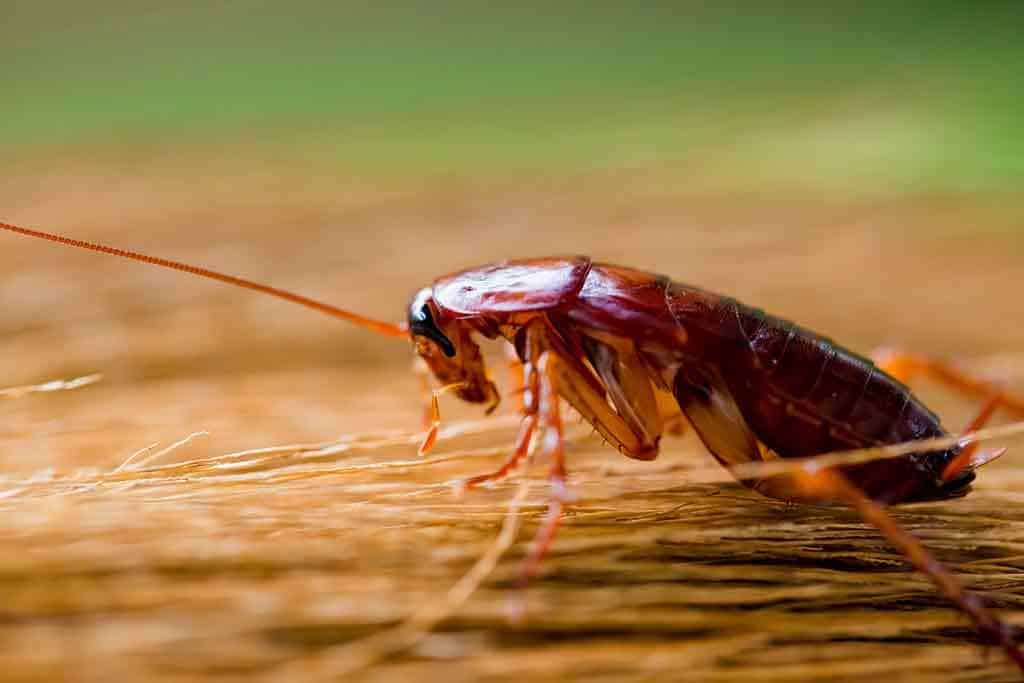Pest Lockdown
Are Cockroaches Disgusted By Humans?
One of the most unpleasant creatures to find crawling through your house is undoubtedly the cockroach. It is also one of the most common. The mere sight of a cockroach makes most people fill with disgust and a desire to get run away or hide. For me cockroaches are a thing of nightmares and something I wish to stay far, far away from.
Cockroaches have been around for millions of years and so has the human distaste for the creatures. As far back as the Egyptian “Book of The Dead” there is a recorded spell meant to keep cockroaches away, “Be far from me, O vile cockroach, for I am the god Khnum”. In addition to that, around 77-79 A.D. Pliny the Elder in his book “Natural History” recommended that the “disgusting” creatures be squashed at first sight. Pliny The Elder also had some comments on the remaining juices suggesting they be used to treat ailments of the ear.
There is anecdotal evidence that cockroaches feel the same disgust towards humans. Imagine you are staring down a cockroach. It seems to be looking right into your being. You can feel the disgust contained within its eyes… Or can you, could it be true that a mutual dislike exists? Upon sighting a human, is a cockroach really disgusted enough to run away and clean itself? Surely a pebble brained cockroach couldn’t comprehend the feeling of disgust as strongly as humans can.
When touched by a human, a cockroach exhibits actions that can be perceived as disgust such as running away and cleaning itself. These actions do not indicate that cockroaches are “disgusted” and can be attributed to their acting on impulses of a simple nervous system.
It is most likely cockroaches are just trying to stay alive. Both the oils of a human and the shadow of a human represent immediate danger to the cockroach. The rest of the article will attempt to breakdown why cockroaches behave this way and then explore why humans are disgusted by cockroaches.
Why Cockroaches Appear Disgusted By Humans

Every time you touch something oils are left behind from your skin. When or IF you ever happen to touch a cockroach oils will also be left behind. These oils may seem harmless but can cause a major irritation for insects.
Cockroaches can not properly function with an accumulation of any foreign material on their body. Particularly bothersome to the cockroach is a build up of materials on their antennae. A study found that when the antennae of a cockroach is not cleaned, their smell is limited. Cockroaches use smell to seek out food and find mates. Both of which are important activities to the survival of cockroaches as a species.
Cockroaches have evolved methods to clean themselves. They do so by running their antennae and legs through their mouth. When cleaning cockroaches are vulnerable and can not move at full speed. Cockroaches have been observed cleaning themselves when they sense they are safe. Other insects, most notably houseflies and ants, will also clean themselves for similar reasons.
This cleaning action is non-emotional for cockroaches. They do not watch a human touch them, then run off and in horror to later reminisce in a feeling of disgust. Neither do they then plot to eradicate humans as some humans do them. Cockroaches are simply invoking an evolutionary response designed to keep them alive and well. To think that cockroaches can comprehend the actions they are performing is to give them too much credit.
The other aspect to the illusion that a cockroach is disgusted by humans is their tendency to scurry away when discovered. Again cockroaches are not advanced enough to know or process a feeling of danger the same way a human does. Cockroaches react to specific frequencies, changes in lighting, and vibrations commonly triggered leading up to their discovery. All of these senses are every primal and do mirror human senses. A cockroach sees something and reacts. It does not have the capacity to think about different options and the consequences of each.
Combined the scurrying of cockroaches and the fact that they clean themselves after being touched can make you think they are disgusted by humans. However, they are only acting on hardwired biological functions. Cockroaches are hard to kill because of these survival mechanisms. It can be sad knowing the feelings of disgust between you and a cockroach are not mutual.
Why Do Humans Find Cockroaches Disgusting?
For most of us the fear of insects comes naturally. It is passed down from one generation to the next. An intense fear of insects even has a name “Entomophobia”. This is a general term for people who have an unrealistic fear of any insect. There are also more specific terms for classes of insects such as the fear of bees “apiphobia”, spiders “arachnophobia”, ants “myrmecophobia” and moths or butterflies “lepidopterophobia”.
Fear of insects comes from our biology in combination with what we see others do when we are young. We learn to fear these creatures to keep us safe. From when you were first born to around the age of six, a fear of insects had not yet been internalized. The internalization of fear occurrs when you observe your parents or other guardian react in fear to an insect. From then on your subconscious started to think that reaction is how you should react also.
This mechanism of learning to be scared works great when people react in fear to situations that pose a real danger. It can be blown out of portion when the societal norm is to react strongly. Why did humans first start to have these reacts then?
The feeling of disgust you have when you see a cockroach, spider, ant colony etc. is known by physiologists as the “rejection response”. Psychologists hypothesis that this response is triggered because insects are so different than us. Insects are the closest existing thing to monsters and animals that present real danger. Insects do not look like us, move jaggedly and have lots of legs. They are not relatable and the unknown of what they might do drives us to fear.
For pests that colonize the sheer number of insects can eek some people out. Think of termites, ant colonies or a spider nest. The “rejection response” is thought to be triggered here by deep feelings of overwhelm and a lack of control over the situation. For very large colonies you can only keep you eye on so many at one time and it can feel as if something is sneaking up.
It was in our ancestors best interest to avoid interactions with unknown creatures. Some cockroaches and insects have been know to carry deadly diseases picked up by what they feed on. Snakes are another example of something very different than humans and often where fear is validated. Many snakes have potent venom and bites were no always curable.
In the past our understanding of medicine was much less advanced then today. Illnesses we think of today as not to be worried about would result in death for people of older cultures. This only served to compound the very real fear humans have of alien creatures.
Conclusion
Cockroaches exhibit actions that can be interpreted as repulsion or disgust when they interact with humans. It can be funny to think they feel the same way about us as we do about them. Sadly this is not the case and the cockroach only wants to stay alive, often at all costs. They have a good reputation for being hard to kill and can even survive headless for several days.
Humans, on the other hand, really do find cockroaches disgusting and this fear is deep rooted. It is brought to the surface reliving feelings that kept our ancestors out of danger and learned actions from our childhood. The rejection response is real and triggered when something is very different or unknown. It may be your parents to thank for teaching you to react in extreme horror any time an insect crosses your path.
